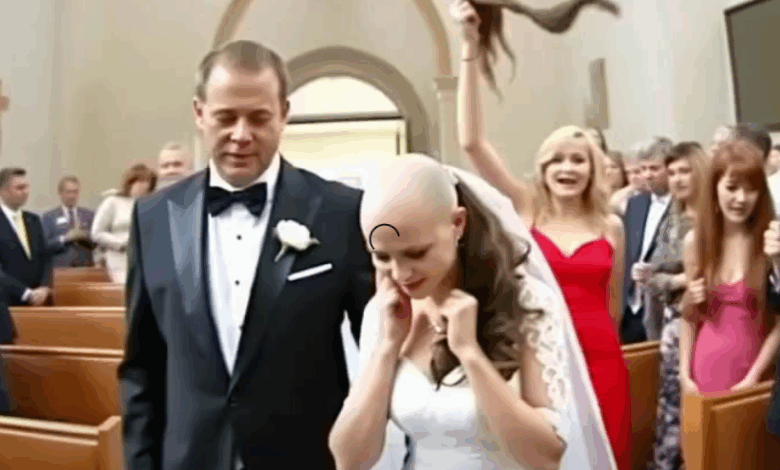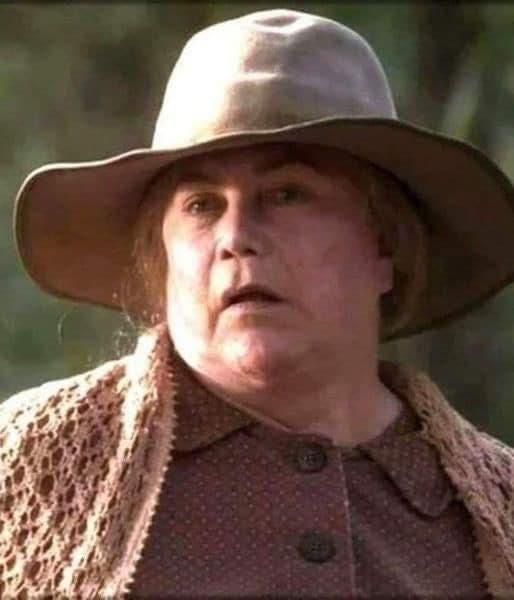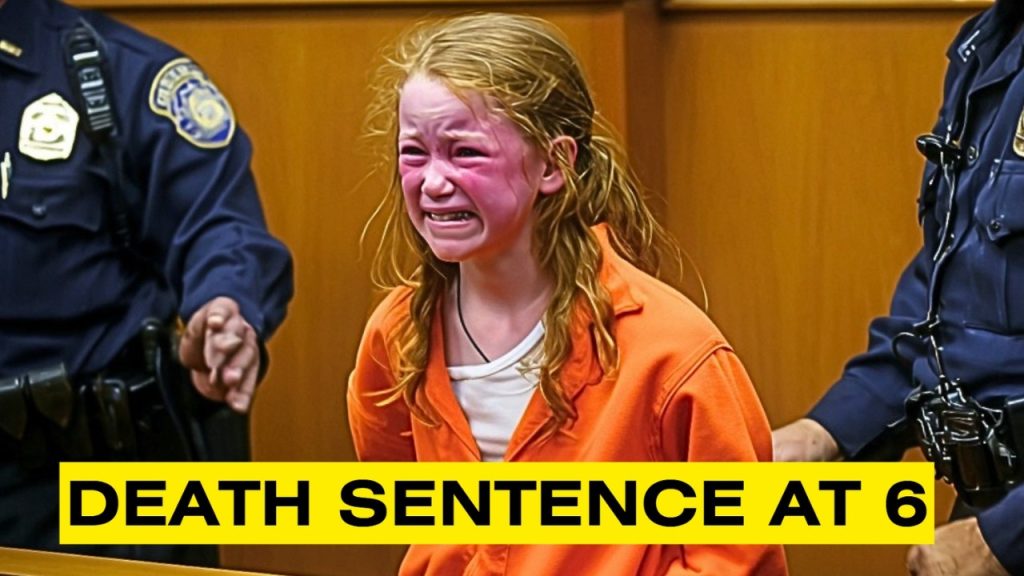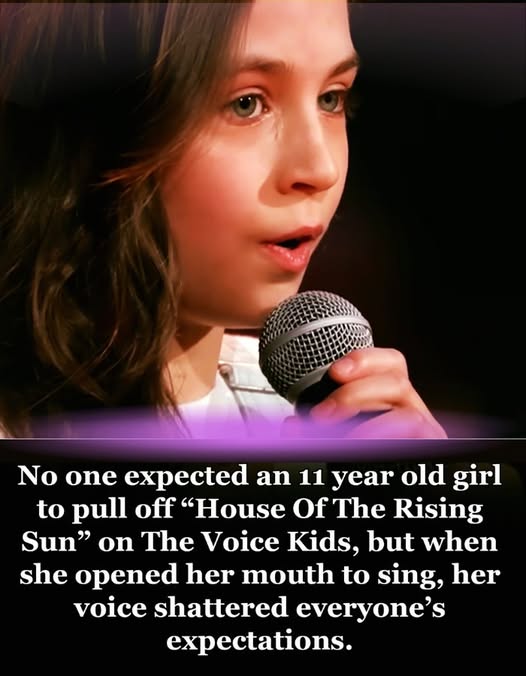
The laughter was supposed to humiliate me. It was supposed to break me, to remind me that sickness had stripped away my beauty and left me something to pity. But standing there—bald, trembling, and exposed in my wedding dress—I realized something extraordinary. Cruelty, when met with courage, can transform everything.
That morning had already been hard enough. I’d spent weeks convincing myself that marrying the man I loved while bald was an act of strength. I told myself that love was deeper than appearances, that vows mattered more than vanity. But when I caught sight of my reflection before walking down the aisle—a smooth scalp shining under the church lights, makeup doing its best to disguise exhaustion and chemo scars—I nearly lost my resolve.
I could feel the whispers before I heard them. The guests, dressed in their Sunday best, stealing glances they thought were discreet. Some looked sympathetic, others uncomfortable. But one face—my soon-to-be mother-in-law’s—carried something colder. Pity blended with contempt.
She’d made her opinion clear long before this day. She had begged her son to postpone the wedding until “things got better.” Meaning, until my hair grew back. Until I looked like the woman she thought her son should marry. “You don’t want your wedding photos to look like a hospital pamphlet,” she’d said once, smiling in that careful, cruel way polite people weaponize concern.
My husband, Daniel, never wavered. He told her that love wasn’t waiting for better timing, and that I was already the most beautiful woman he’d ever known. I believed him. Until that moment at the altar, when she decided to make her final move.
The ceremony had begun perfectly. The music swelled, the pastor’s voice echoed gently through the high ceilings, and Daniel’s eyes found mine. For a heartbeat, everything was right. Then I saw her—his mother—standing from the front pew, holding something behind her back.
She stepped forward with a smile that didn’t reach her eyes and said, loud enough for everyone to hear, “Every bride deserves a little help to look her best.” Then she lifted her hand—and placed a wig on my head.
Laughter rippled through the crowd, sharp and merciless. Someone gasped. Someone else chuckled. My face burned as I felt the synthetic curls slide against my skin. She adjusted it, even patted it into place, as if she’d just done me the kindest favor imaginable.
For a moment, I froze. My throat locked, my heart pounded so hard I could hear it echo in my skull. I wanted to scream. I wanted to run. But instead, I stood there, feeling every ounce of shame she meant for me to feel.
And then something unexpected happened.
From the second row, I heard a soft rustle. One of my friends, Emma—a fellow cancer survivor—stood up. Without a word, she removed her own wig. Her scalp was scarred, pale under the lights, but her expression was steady. She walked down the aisle and took my hand. “You look perfect,” she said.
Then another woman rose—a distant cousin, someone I hadn’t even known had gone through chemo years earlier. She took off her wig too. Her hair had just begun to grow back, patchy and uneven, but she smiled like she was free.
The silence that followed was electric.
And then it spread. One by one, women across the pews began removing their wigs, hairpieces, scarves. Dozens of them. Every shape, every age. The air filled with gasps, tears, nervous laughter—but this time it wasn’t cruel. It was real.
In minutes, that church was no longer a hall of judgment. It was a sanctuary of solidarity. The thing that was meant to shame me had become a symbol of every woman who’d ever been told to hide her pain to make others comfortable.
My mother-in-law stood frozen, her plan collapsing around her. She tried to speak but her voice faltered. For the first time, she looked small. Vulnerable. Then she did something I never expected—she started to cry.
Through tears, she whispered, “I’m sorry. I was scared. I thought if I could make you look… normal, maybe I wouldn’t have to face what was happening.” Her voice broke. “I couldn’t stand seeing my son so afraid of losing you.”
The cruelty hadn’t come from malice—it had come from fear. Misguided, cowardly fear.
I took off the wig and placed it in her hands. “You don’t need to fix me,” I said quietly. “You just need to love me.”
She nodded, shaking. For the first time, she hugged me. Not the stiff, polite embrace she’d given me before—but a real one, trembling and wet with apology.
The pastor, speechless for a moment, finally said, “Well… I think we’ve all witnessed something sacred today. Shall we continue?”
And we did.
When Daniel said his vows, his voice shook. “You are the strongest person I know,” he said, his thumb brushing my bare scalp. “When I look at you, I don’t see sickness. I see grace. I see life.”
When I said mine, I looked past him—at every woman standing bare-headed in that church, each one a quiet soldier of survival—and I realized I wasn’t just marrying a man. I was marrying into a new understanding of what love actually meant.
By the time we exchanged rings, there wasn’t a dry eye in the room. Even the guests who’d laughed were crying now, some out of shame, others out of awe. The same crowd that had watched my humiliation was now witnessing something far more powerful: forgiveness.
After the ceremony, as we stood outside for photos, women approached me one by one. Some were strangers who’d never told anyone about their hair loss, their chemo, their fear of being seen. “You made me feel brave,” one whispered. Another said, “I haven’t gone out without my wig in years. I think I will now.”
Even my mother-in-law, mascara smudged, came forward. “You looked beautiful,” she said. This time, I believed her.
That night, I looked at my reflection again—the same bald head, the same scars—but something had changed. What I saw wasn’t weakness or shame. It was a crown. Proof that grace isn’t found in perfection—it’s found in the refusal to hide.
Cruelty had tried to humiliate me. But courage answered louder.
That day, in that church, I didn’t just reclaim my dignity—I witnessed an entire room reclaim theirs. And in the middle of it all stood one simple truth: beauty doesn’t vanish with loss. It just sheds what was false and reveals what’s real.
I married the man I loved that day. But I also married into forgiveness, into resilience, into the kind of family that had learned compassion the hard way.
What began as shame ended in strength. What was meant to destroy me became my defining moment. My bald head became my crown, my scars my story, and my forgiveness—my greatest act of rebellion.



